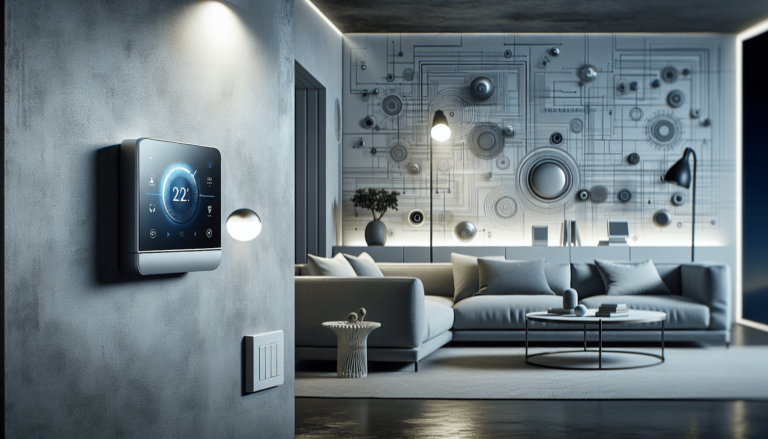

HVAC Services
Get Professional Repairs From The Area's Trusted HVAC Technicians. Ask About Our Services! We Offer Professional Heating & Cooling System Repairs And Guarantee Long-Lasting Results.
Got Question? Call us: (850) 678-2665Financing
Remote HVAC Control: Benefits Of Smart Systems
Discover the benefits of remote HVAC control with smart systems. Adjust your home or office temperature from anywhere. Save energy and enjoy convenience!
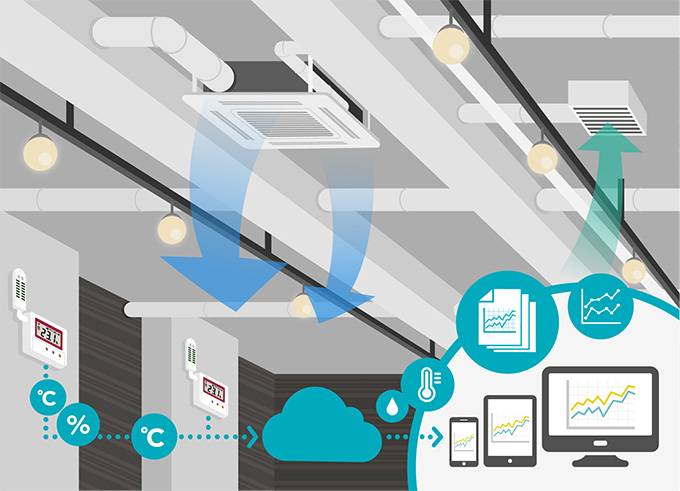
In today’s fast-paced world, convenience is key. And when it comes to controlling the temperature of your home or office, nothing beats the convenience of remote HVAC control. With smart systems, you can now effortlessly adjust the heating or cooling settings of your space, even when you’re miles away. Imagine coming home to a cozy and comfortable environment after a long day, or being able to optimize energy usage and save on utility bills with just a few taps on your smartphone. Remote HVAC control offers a whole new level of ease and efficiency, making it a game-changer in the world of temperature control. Take advantage of this innovative technology from Tempacure Heating and Air Conditioning and experience the benefits of smart systems firsthand.
Energy Efficiency
Reduced energy consumption
One of the key benefits of smart HVAC systems is their ability to reduce energy consumption. By utilizing advanced sensors and programmable settings, these systems can optimize energy usage based on occupancy, weather conditions, and other factors. This means that you no longer have to worry about wasting energy when you’re not at home or when the weather doesn’t require heavy cooling or heating.
Optimized HVAC performance
Smart HVAC systems are designed to continuously monitor and analyze your home’s temperature, humidity, and other environmental conditions. This real-time data allows the system to make intelligent decisions and adjust the HVAC settings as needed to maintain optimal comfort levels while minimizing energy waste. As a result, you can enjoy a consistently comfortable indoor environment without sacrificing energy efficiency.
Smart scheduling for temperature control
With traditional HVAC systems, you would typically set a fixed schedule for heating or cooling your home. However, this approach is not very flexible and can result in unnecessary energy consumption. Smart HVAC systems, on the other hand, allow you to create customized schedules based on your daily routine. You can program the system to automatically adjust the temperature when you wake up, leave for work, or go to bed. This level of control helps to ensure that energy is not wasted on heating or cooling an empty home.
Cost Savings
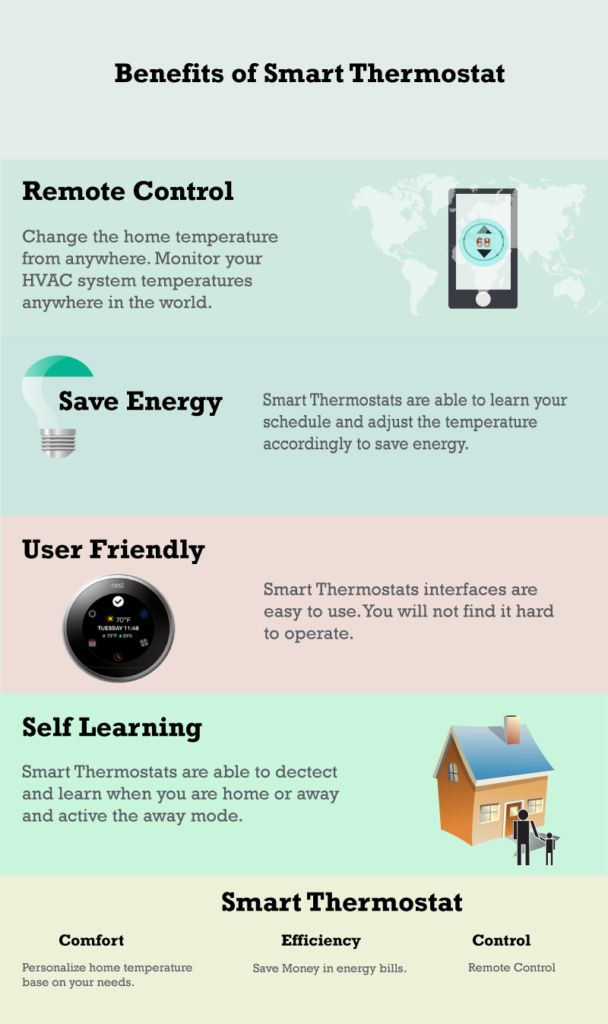
This image is property of www.1st-air.ca.
Lower energy bills
By reducing energy consumption, smart HVAC systems can significantly lower your monthly energy bills. These systems are designed to operate more efficiently than traditional HVAC systems, using only the necessary energy to maintain your desired indoor temperature. With the ability to control and optimize energy usage, you can expect to see a noticeable decrease in your energy costs over time.
Reduced maintenance costs
Smart HVAC systems often come equipped with advanced diagnostic features that can detect and alert you to potential issues in real-time. This proactive approach allows you to address maintenance needs promptly, preventing small problems from becoming major and costly repairs. Additionally, these systems are designed to operate more efficiently, which can lead to reduced wear and tear on your HVAC equipment. Consequently, you can save money on maintenance and extend the lifespan of your system.
Longer lifespan of HVAC equipment
Smart HVAC systems are built to be more efficient and reliable than traditional systems, which can help prolong the lifespan of your HVAC equipment. By operating at optimal levels and reducing unnecessary strain on the system, smart systems can prevent premature wear and tear. As a result, you can enjoy the comfort of your HVAC system for a longer period before needing to replace or repair any components.
Convenience and Comfort
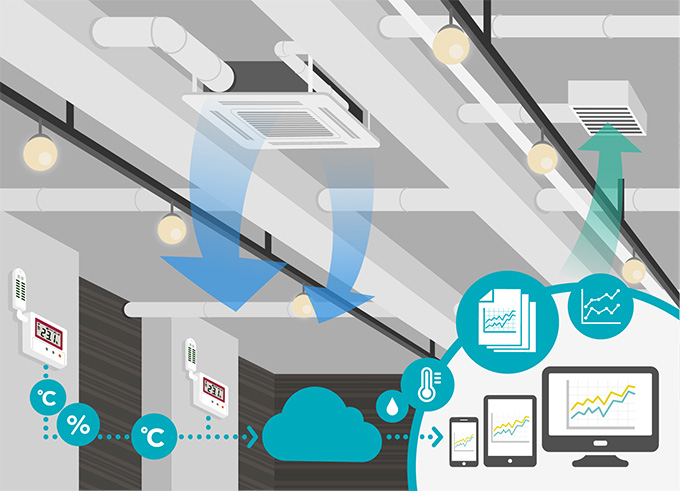
This image is property of www.asadria.com.
Remote access and control
One of the standout features of smart HVAC systems is the ability to control and monitor your system remotely. Whether you’re at work, on vacation, or simply in another room, you can easily adjust the temperature and settings of your HVAC system using a smartphone or tablet. This means you can come home to a comfortable environment, even if your plans change throughout the day.
Customized temperature settings
Smart HVAC systems allow you to create customized temperature settings for different zones in your home, known as zoning. This means you can set different temperatures for individual rooms or areas, based on your preferences and usage patterns. For example, you can have a higher temperature setting in rooms that are rarely occupied or adjust the temperature in different parts of the house to accommodate the needs of different family members. This level of customization enhances your comfort and ensures that energy is not wasted on areas that don’t require heating or cooling.
Automated temperature adjustments
With the ability to learn from your behaviors and preferences, smart HVAC systems can automatically adjust the temperature based on your needs. These systems adapt to your schedule, occupancy patterns, and other factors to maintain the desired comfort level without manual intervention. For example, if you typically come home from work at 6 p.m., the system can start heating or cooling your home in advance to ensure it’s comfortable when you arrive. This automation eliminates the need for constant manual adjustments and ensures a comfortable environment without wasting energy.
Improved Indoor Air Quality
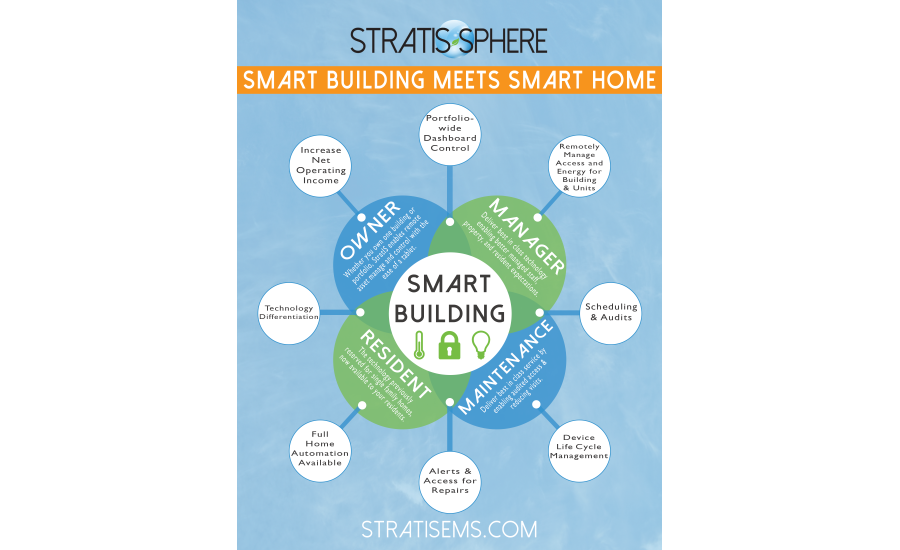
This image is property of www.esmagazine.com.
Real-time monitoring and alerts
Smart HVAC systems often come equipped with sensors that can monitor various aspects of indoor air quality, such as humidity, particulate matter, and volatile organic compounds. These sensors provide real-time data and can alert you to any potential air quality issues. With this information, you can take appropriate actions to improve the air quality in your home, such as adjusting ventilation or addressing potential sources of pollutants.
Air filtration and purification
Many smart HVAC systems feature advanced air filters and purification technology that can effectively remove allergens, dust, pollen, and other harmful particles from the air. These filters can trap microscopic particles, ensuring cleaner and healthier air for you and your family. With improved indoor air quality, you may experience fewer respiratory problems, allergies, and other health issues associated with poor air quality.
Smart ventilation control
Smart HVAC systems can automatically adjust the ventilation in your home based on various factors, such as occupancy and outdoor air quality. This ensures that your home is properly ventilated to remove stale air, control humidity levels, and prevent the buildup of airborne pollutants. By optimizing ventilation, these systems contribute to better overall indoor air quality and create a healthier living environment.
Enhanced HVAC System Management
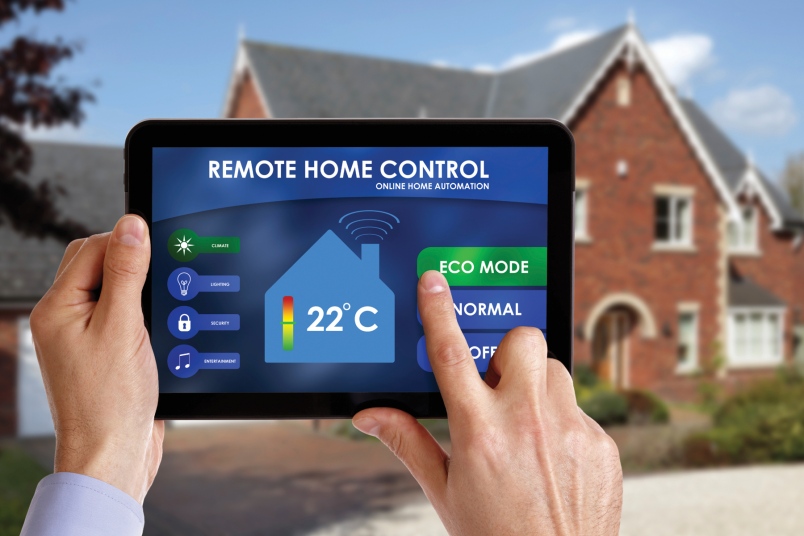
This image is property of www.novismarthome.co.uk.
Centralized control for multiple locations
For those who own multiple properties or have multiple HVAC systems, smart HVAC systems offer centralized control. With a single interface or app, you can easily manage and control all your HVAC systems from anywhere. This convenience eliminates the need to visit each location individually, saving time and effort.
Detailed usage reports and analytics
Smart HVAC systems provide detailed usage reports and analytics that can help you better understand your energy consumption patterns. These reports can show how much energy is being used, which areas are consuming more energy, and provide insights into potential areas for improvement. By identifying energy-saving opportunities, you can further optimize your HVAC system and potentially reduce energy costs even more.
Remote troubleshooting and diagnostics
When issues arise with your HVAC system, smart HVAC systems can provide remote troubleshooting and diagnostics. Some systems are equipped with self-diagnostic capabilities that can detect and alert you to potential problems. Additionally, HVAC professionals can remotely access the system to diagnose issues and provide guidance on necessary repairs or maintenance. This remote support can save you time and money by avoiding unnecessary service calls and quickly resolving problems.
Smart Integration with Other Devices
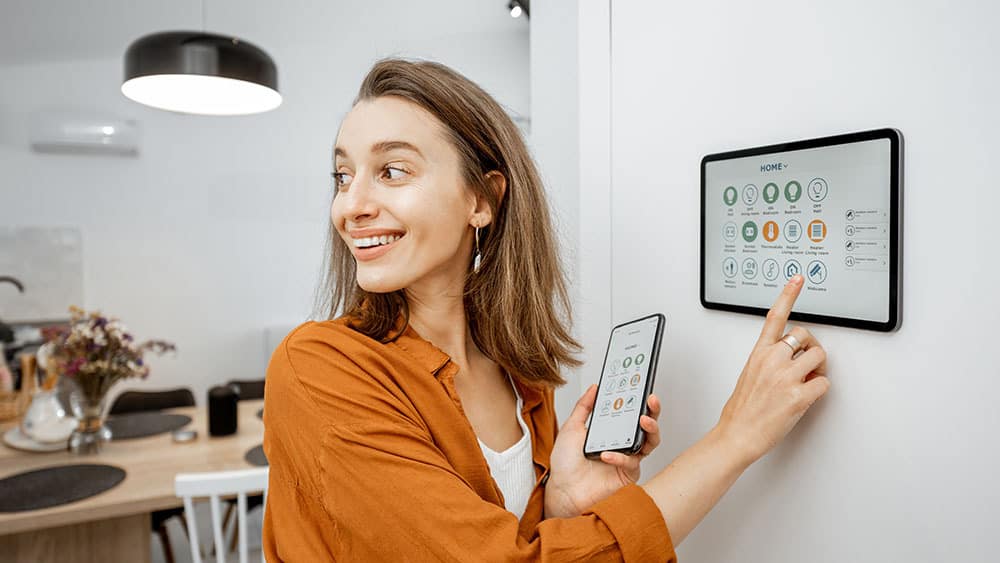
This image is property of cielowigle.com.
Integration with smart thermostats
Smart HVAC systems can seamlessly integrate with other smart devices, such as smart thermostats. This integration allows for even greater control and automation of your HVAC system. For example, you can synchronize your smart thermostat with your smart HVAC system to create more advanced temperature schedules and settings. Additionally, smart thermostats can gather data from various sources, such as weather forecasts, and adjust your HVAC system’s settings accordingly.
Compatibility with voice assistants
The integration of smart HVAC systems with voice assistants, such as Amazon Alexa or Google Assistant, allows for hands-free control of your HVAC system. You can simply use voice commands to adjust the temperature, turn the system on or off, or inquire about the current settings. This integration adds another layer of convenience and makes controlling your HVAC system even easier.
Integration with home automation systems
Smart HVAC systems can be seamlessly integrated into comprehensive home automation systems. This means you can create customized routines that automatically adjust your HVAC system’s settings based on various triggers or events. For example, you can program the system to lower the temperature when you close your front door, or adjust the settings when motion is detected in certain areas of your home. By integrating your HVAC system into your home automation ecosystem, you can create a truly smart and interconnected living environment.
Increased Sustainability
Reduced carbon footprint
One of the significant benefits of smart HVAC systems is their contribution to reduced carbon emissions and a more sustainable future. By optimizing energy usage and using renewable energy sources when available, these systems help to minimize the carbon footprint associated with heating and cooling. This eco-friendly approach not only benefits the environment but also supports global efforts to combat climate change.
Optimized use of renewable energy
Smart HVAC systems are designed to take advantage of renewable energy sources, such as solar power. These systems can connect with your home’s solar panels and intelligently manage energy consumption, utilizing solar energy whenever possible. By optimizing the use of renewable energy, smart HVAC systems further reduce reliance on fossil fuels and contribute to a cleaner and greener world.
Smart energy management
Smart HVAC systems enable smart energy management strategies. These systems can analyze real-time data, weather forecasts, and energy pricing to intelligently adjust your HVAC system’s settings. For example, the system can reduce energy consumption during peak demand periods or when electricity prices are high, without compromising comfort. By actively managing energy usage, these systems help to optimize energy consumption and support sustainable energy practices.
Flexibility in Usage
Remote access from anywhere
With smart HVAC systems, you can access and control your system from anywhere with an internet connection. Whether you’re at work, traveling, or simply in another room, you can adjust the temperature and settings of your HVAC system using a smartphone, tablet, or computer. This flexibility allows you to maintain a comfortable indoor environment no matter where you are.
Control via smartphones or tablets
Smart HVAC systems are designed to be user-friendly and easily controllable through smartphones or tablets. With intuitive apps, you can quickly and effortlessly adjust settings, monitor energy usage, and receive alerts from your HVAC system. This level of control and convenience puts your HVAC system at your fingertips, allowing you to make changes and manage your system with ease.
Adaptive and predictive capabilities
Smart HVAC systems are equipped with adaptive and predictive capabilities that can learn from your behaviors and adjust the system accordingly. Over time, the system can anticipate your needs, automatically adjusting temperature settings based on your daily routines and preferences. These adaptive and predictive capabilities enhance comfort and energy efficiency by proactively adjusting the HVAC system to meet your needs.
Enhanced Security
Additional security measures
Smart HVAC systems often come with enhanced security measures to protect your home and system. These measures can include encrypted communications, secure user authentication, and protection against cyber threats. With these security features, you can have peace of mind knowing that your HVAC system is protected from unauthorized access and potential vulnerabilities.
Monitoring for HVAC-related hazards
Smart HVAC systems can provide real-time monitoring for HVAC-related hazards, such as gas leaks or carbon monoxide levels. These systems can detect abnormal conditions, notify you immediately, and trigger appropriate actions to ensure your safety. By providing early warnings, smart HVAC systems help to prevent potential hazards and protect your home and family.
Protection against unauthorized access
Smart HVAC systems employ robust security measures to prevent unauthorized access. These measures include secure login credentials, encryption, and multi-factor authentication. By securing your HVAC system, you can prevent unauthorized individuals from tampering with your settings, accessing your personal information, or potentially compromising your system’s functionality.
Future-proofing and Technological Advancements
Integration with upcoming technologies
Smart HVAC systems are designed to be future-proof, meaning they can easily integrate with upcoming technologies and advancements in the HVAC industry. As new technologies and features become available, you can seamlessly upgrade your system to take advantage of these advancements without the need for a complete system replacement. This ensures that your HVAC system remains at the forefront of innovation and continues to deliver optimal performance.
Smart algorithms and machine learning
Smart HVAC systems leverage advanced algorithms and machine learning capabilities to continuously optimize performance. These systems can learn from your usage patterns, environmental conditions, and other factors, enabling them to make intelligent decisions and adjustments. With time, the system becomes more efficient and precise in maintaining your desired comfort levels while minimizing energy consumption.
Continuous software updates
Smart HVAC systems benefit from continuous software updates, which ensure that your system remains up to date with the latest features, security enhancements, and improvements. These updates can be done remotely, without the need for a technician visit. By regularly updating your system’s software, you can take advantage of technological advancements and ensure ongoing peak performance of your HVAC system.
By embracing the benefits of smart HVAC systems, you can enjoy increased energy efficiency, cost savings, convenience, and comfort. With improved indoor air quality, enhanced system management, smart integration, sustainability, flexibility, enhanced security, and future-proofing, these systems offer a comprehensive solution to your heating and cooling needs. So why settle for outdated technology when you can unlock the full potential of a smart HVAC system? Upgrade your home today and experience a new level of control, savings, and comfort.





